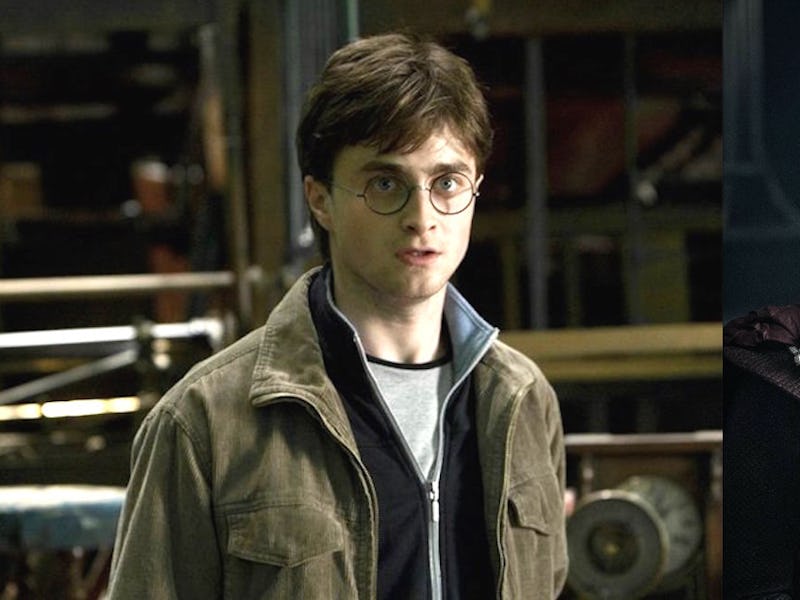'Harry Potter' Is a Cautionary Tale for 'Game of Thrones'
Since the 'Game of Thrones' franchise is continuing indefinitely, here's what it can learn from 'Harry Potter.'

Harry Potter isn’t just The Boy Who Lived — he’s the boy who will never die. His story spans into eternity, with four more installments of the Fantastic Beasts and Where to Find Them spinoff franchise in its future, a Broadway premiere of Harry Potter and the Cursed Child on the horizon, a theme park, and constant updates on Pottermore and J.K. Rowling’s Twitter. Just recently, Rowling caused a stir by apologizing for Snape’s death.
With the recent news that up to four Game of Thrones spinoff shows are in the works at HBO, George R. R. Martin’s A Song of Ice and Fire franchise looks poised to follow in its footsteps. While this is good news for fans, it would do well to look to Harry Potter as a cautionary tale.
Harry Potter and the Cursed Child, a play featuring middle-aged versions of Harry and his friends, received positive acclaim for its stage production. But it seems that acting and flashy production goes a long way, because fans who only had access to the printed version of the story reacted to it like Sirius Black being told to make nice with Severus Snape.
Harry Potter and Sirius Black in 'Harry Potter and the Order of the Phoenix'
Its comments on Reddit and reviews on Amazon tell a different story, filled with sentiments like, “When you move away from those central themes, the integrity of who we know Harry … to be, you destroy Harry Potter and all that he stood for for 7 books,” and, “The characters you love and adore to abhore are completely missing - just their names remain, and tiny fragments of what seems to be a stolen history of their lives.”
Although not every Potter fan loved Fantastic Beasts and Where To Find Them, either, that story had a warmer reception, in part because it moved to a different time period and cast of characters. It didn’t have to compete with its own pre-existing canon, because by showing a new view of the wizarding world (Prohibition-era New York instead of 1990’s London), it didn’t feel like the old story was being rewritten.
The Game of Thrones spinoffs already have the advantage of moving to different eras, but they’re not out of dangerous waters quite yet. If they remain centered around wealthy, pretty people in prominent Houses, they’re showing the same world and point of view as the original — just with different Targaryens, Starks, Lannisters, and Baratheons.
If a spinoff centered around Rhaegar Targaryen, for example — a high-status, attractive child of a questionable parent, ruling a politically tumultuous region — that would hardly present a new corner of the world. More importantly, introducing Lyanna, a character seen through flashbacks in the current show, in the Rhaegar spinoff would color the entire Stark line. This includes a young Ned, who would undoubtedly play a big part, and are fans really ready to see a noble death overwritten like Cedric Diggory’s turn as a Death Eater in Cursed Child? Rewriting the emotional connection to a known character is perhaps an even bigger stumbling block than reflecting a similar viewpoint in the spinoff.
To truly succeed in continuing a franchise, the key is not to rehash the same story with a similar cast of characters. If a fantasy world is going to expand its scope, the most interesting move is to choose not only a different time and place, but a different perspective. Skip the sons and daughters of nobility, even if they’re bastards. Instead, pick a lowborn person, a sellsword, an anonymous maid, or even a Red Priest as the main character.
When a story can’t rely on old, familiar characters and viewpoints, the night is dark and filled with terrors — but it’s also far more interesting that way.